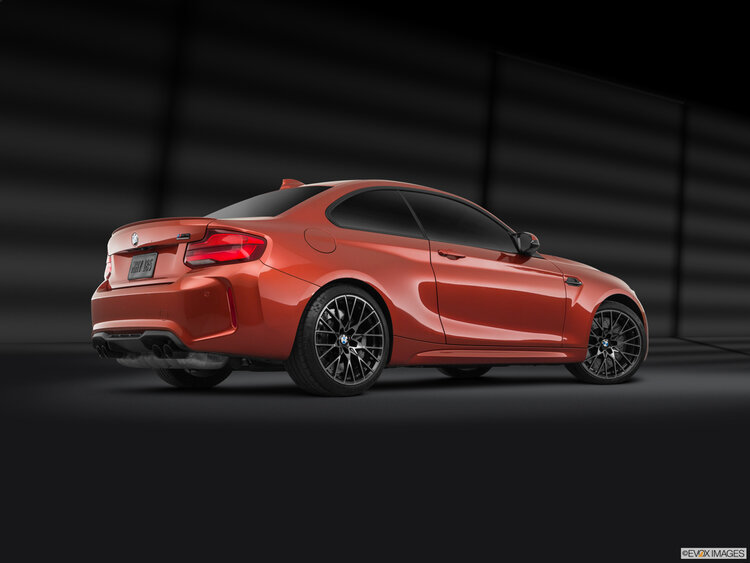Even before 2020 began, experts knew it was going to be a tough year for the automotive industry. New car sales trended downward in 2019, and a glut of vehicles coming off leases were primed to flood the market with appealing alternatives to new car purchases. But no one could have predicted the impact of coronavirus. In three short months, the pandemic ended the longest bull market in history, pushed nearly every industry into retreat, and is predicted to cause a contraction of the global economy throughout the year. In the age of coronavirus, car sales volumes that were already set to shrink now seemed poised to plunge off the proverbial cliff.
But while the coronavirus undoubtedly changes the automotive market, it doesn’t eliminate car sales. Instead, there are new opportunities and need for high-quality dealer websites, virtual car showrooms, and fully virtual car dealerships. Dealers that have already invested in the technologies, assets, and services necessary to create functional and compelling digital sales experiences are well-positioned to survive—and maybe even thrive—during the pandemic. Others will need to adapt quickly to remain viable in the age of the coronavirus.
THE EFFECTS OF THE CORONAVIRUS ON CAR SALES
The coronavirus is affecting car sales much like it is affecting nearly every other industry. With customers and many employees in lockdown or voluntary self-isolation, no one is visiting the saleroom floor. As Maryann Keller, an auto-industry consultant in Stamford, Connecticut, says, “There aren’t a lot of people in gloves and masks running out to buy cars.” Brick and mortar dealerships have had to close their doors altogether in areas where they are not considered essential services, and backlogs are developing in the automotive supply chain as employees test positive. With so many consumers not buying products, many companies are laying off, furloughing, or firing employees, leaving millions financially devastated. The result is a shrinking number of car shoppers—and dealership employees.
What dealerships need to keep at the forefront of their strategy during the coronavirus pandemic is that not all car buyers are off the market. Essential workers still need to get to work. People still need to get to the grocery store. Many who formerly relied on walking, public transport, or rideshares no longer feel safe doing so and are turning to personal vehicles to minimize their vulnerability. In other words, the market for new or used cars hasn’t vanished; it has simply changed.
To succeed in attracting and protecting car buyers while keeping employees safe, dealerships will have to change their sales methods and step up their digital marketing. They need to spread their message across more channels and cover a wider geographic area. The online car buying experience must also improve and offer shoppers a true alternative to real-life showrooms. This shift had already begun before the pandemic. What coronavirus has done isn’t fundamentally shift the market, but accelerate changes that were always coming.

ACCELERATING THE SHIFT TO ONLINE CAR SALES
Years of studies of consumer behavior have shown the increasing importance of the internet in the buying process. Not only are a growing number of car shoppers showing a preference for online research, but many would like an entirely digital buying process. The 2019 Car Buyer Journey study bears that out with approximately 83 percent of respondents stating that they would prefer to complete one or more steps of the purchase process online. The secret for car sales success in the age of coronavirus is to give customers what they want—and doing so while protecting them and dealership employees.
In many ways, this is an extension of the dealership’s existing online services. It is just making existing services more robust and functional with a website that offers more options and is optimized to work quickly across devices. These online services must be supported by customer service, sales, and finance staff working from home, and methods for no-contact delivery must be developed.
Dealerships across the nation are already working to build innovative and safe car sales solutions. To truly thrive, however, these solutions should include fully-realized virtual showrooms.
VIRTUAL SHOWROOMS ARE KEY CAR SALES DURING CORONAVIRUS
One of the most important elements of successful car sales during the pandemic is the ability to mimic and build on the strengths of the brick and mortar showroom—and making those features accessible to as many car shoppers as possible. Including comprehensive car picture galleries posted on third-party listing sites, placing strategic digital ads, and making full use of social media can work well to garner interest across a wide geographic area. But dealers must also offer more captivating remote experiences.
Providing a complete photo gallery for each vehicle in true-to-life color is a start. HD car videos can provide even more in-depth coverage to capture attention and enhance the customer experience. Full 360-degree interior panoramas and 360-degree exterior spins allow car shoppers to interact with a vehicle model at their leisure. Together, these elements turn a dealer’s webpage into a virtual showroom of sorts. But rapidly advancing technology has opened up new frontiers in extended reality (XR), creating unprecedented opportunities for fully-realized virtual and augmented reality car showrooms.
With virtual reality, customers can walk around and sit inside the vehicles they are considering in an immersive digital environment that simulates a real-life experience. With AR, they can project into a real-world environment to see how a vehicle will fit in their garage and take a look inside to consider what everyday driving may be like. This high level of engagement offers a significant advantage for dealers by offering customers powerful and enjoyable car shopping at a time when real-life showrooms are out of reach.
While XR showrooms can be accessed from anywhere, they do not have to be solitary experiences. Car shoppers can be guided through VR and AR showrooms by remote sales staff who can explain each vehicle’s features, discuss financial matters, negotiate prices, and finalize deals. This adds an invaluable human element to online shopping that can help dealers build relationships with customers—a service that is likely to stand out at a time of social distancing and isolation. Just as importantly, this approach gives dealership employees the ability to keep working without compromising their health and safety.
HOW AUTOMOTIVE STOCK LIBRARIES HELP CAR SALES DURING CORONAVIRUS
Producing the comprehensive automotive photos, videos, and XR assets needed to create digital showrooms and fully virtual car dealerships is a challenge during the best of times. During a global pandemic, with much of the labor and expertise needed in lockdown, it can be impossible. But automotive stock libraries that specialize in complete imaging solutions for car dealerships continue to offer these assets, giving dealers the ability to implement new strategies and offer dynamic car shopping experiences.
The impact of coronavirus is immense, but with creative solutions, dealers can provide vital services and support for car shoppers and employees. And this isn’t just a temporary shift. Many of the changes made necessary by the current situation offer a durable pathway to the future of car sales and will provide benefits for years to come.


1 thought on “CAR SALES IN THE AGE OF CORONAVIRUS”
Comments are closed.